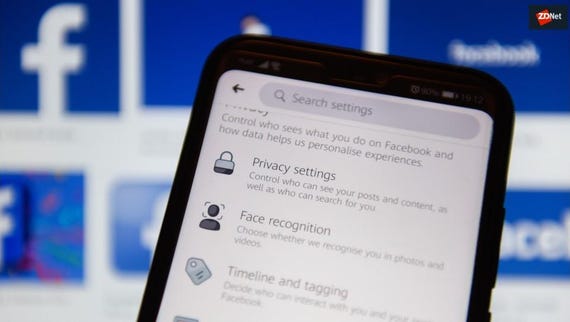
The 6th Circuit Federal Court of Appeals‘ recent court decision United States v. Farrad gives a very comprehensive analysis regarding the admissibility of Facebook records. In short, the Court held that (1) photographs from a Facebook account were properly authenticated by evidence that the photos in question came from a Facebook account registered to the defendant and the photos appeared to show the defendant in his own apartment, and (2) The Facebook photographs were self-authenticating as a business record.
Washington’s evidence rules are either identical to, or extremely similar, to the federal rules discussed in the opinion.
BACKGROUND FACTS
After serving time in prison for a previous felony, Farrad was released from federal
custody in January 2013. Farrad came to the attention of local law enforcement sometime after June 10 of that same year, when various confidential informants and concerned citizens evidently reported observing Farrad to be in possession of one or more firearms while in Johnson City, Tennessee.
Some time later, a Officer Garrison of the Johnson City Police Department used an undercover account and sent Farrad a friend request on Facebook. After Farrad accepted the friend request, Garrison was able to see more of Farrad’s photos. One photo in particular caught his interest: a photo that showed what appeared to be three handguns sitting on a closed toilet lid in a bathroom. The photo was uploaded on October 7, 2013.
Garrison brought the photo to the attention of Johnson City police officer and FBI task
force officer Matthew Gryder, who applied on October 25, 2013, for a warrant to search Farrad’s Facebook’s records. A federal magistrate judge granted the warrant. The warrant allowed execution “on or before November 6, 2013,” and the return executed by federal law enforcement indicates that the warrant was “served electronically” on Facebook on November 1, 2013.
The resulting data yielded a series of additional photos that were central to this case: some show a person who looks like Farrad holding what appears to be a gun, while others show a closer-up version of a hand holding what appears to be a gun.
While none of the photos shows a calendar, date, or one-of-a-kind distinguishing feature, the person in the photos has relatively distinctive tattoos, and some of the photos show, as backdrop, the décor of the room in which they were taken. Facebook records revealed that the photos had been uploaded on October 11, 2013.
In September 2014, a federal grand jury charged Farrad with having, on or about October 11, 2013, knowingly possessed a firearm, namely, a Springfield, Model XD, .45 caliber, semiautomatic pistol.
On March 26, 2015, Farrad filed a pro se motion seeking an evidentiary hearing, dismissal of the indictment against him, and suppression of the Facebook photos on Fourth Amendment grounds. The magistrate judge assigned to Farrad’s case denied that motion on April 9, 2015, on the grounds that Farrad already had appointed counsel and the local rules prohibited a represented party from acting in his or her own behalf without an order of substitution. Farrad’s trial counsel did not renew Farrad’s motion.
The parties did, however, litigate the admission of the photos on evidentiary grounds.
The Government argued that the Facebook photos qualified as business records under Federal Rule of Evidence 803(6) and that they were, as such, self-authenticating under Federal Rule of Evidence 902(11).
In support of its assertion, the Government introduced a certification by a Facebook-authorized records custodian, who attested that the records provided by Facebook—including “search results for basic subscriber information, IP logs, messages, photos, and other content and records for Farrad’s Facebook identity were made and kept by the automated systems of Facebook in the course of regularly conducted activity as a regular practice of Facebook and made at or near the time the information was transmitted by the Facebook user.
In addition to disputing admissibility under Federal Rules of Evidence 401, 402, 403, 404, 405, and 406, Farrad’s trial counsel argued that the photos, despite the custodian’s affidavit having been “done correctly under the federal rules,” were “hearsay within hearsay” and did not “authenticate who took the pictures, when the pictures were taken, by whom, at what time. All that the custodian could attest to, trial counsel emphasized, was that at some point these pictures were uploaded to what was allegedly Farrad’s Facebook account, the custodian could not testify as to who took the photos, when they were taken, where they were taken.
On June 15, 2015, the district court concluded that it had found no indication of a lack of trustworthiness and that the photos qualified as business records under Rules 803(6) and 902(11). It also determined that the photos were relevant.
The jury found Farrad guilty. He appealed his case to the 6th Circuit Court of Appeals.
ISSUES
Farrad raises seven arguments on appeal: (1) that there was insufficient evidence
introduced at trial to support his conviction; (2) that the Facebook photos should not have been admitted into evidence; (3) that Officers Hinkle and Garrison should not have been permitted to testify as experts; (4) that the district court should have granted Farrad’s motion for a new trial; (5) that Farrad did not in fact qualify as an armed career criminal under the ACCA; (6) that finding him to be an armed career criminal at sentencing violated his Fifth and Sixth Amendment rights; and (7) that the district court should have excluded the Facebook photos on Fourth Amendment grounds.
In this blog post, we focus on the issue of whether the Facebook photos were admissible at trial.
COURT’S ANALYSIS & CONCLUSIONS
Admissibility of Photos
The Court reasoned that like other evidence, photographs must be authenticated prior to being admitted into evidence. To satisfy this requirement, under federal evidence rule (FRE) 901, the person seeking to admit the evidence (proponent) must produce evidence proving that the item is what the proponent claims it is. This authentication rule requires only that the court admit evidence if sufficient proof has been introduced so that a reasonable juror could find in favor of authenticity or identification.
The Court further reasoned that under FRE 902, some items – like, apparently Facebook posts – are self-authenticating. In other words, they require no extrinsic evidence of authenticity in order to be admitted. This category of self-authenticating evidence includes “certified domestic records of a regularly conducted activity”—that is, a business “record that meets the requirements of Rule 803(6)(A)–(C), so long as properly certified by a custodian or other qualified person and so long as the evidence is subject to challenge by the opposing party.
“The question, then, is the central one: the authentication of the photos,” said the Court. “They appeared to show Farrad, his tattoos, and (perhaps most probatively) distinctive features of Farrad’s apartment, as confirmed by police investigation . . . The district court was correct to admit them.”
Fourth Amendment Suppression
After addressing the admissibility issue, the Court went on to reject Farrad’s claim that admitting the Facebook photos violated the Fourth Amendment. The Court reasoned that while a search made by a private entity acting at the direction of law enforcement agents must comport with the Fourth Amendment, Farrad has pointed to no authority or rationale to suggest that a date of execution similarly binds a third party’s certification of its records for evidentiary purposes. “This argument lacks merit,” said the Court.
“The bottom line in this case—that Farrad has been sentenced to serve 188 months in prison because the Government found Facebook photos of him with what appears to be a gun—may well raise a lay reader’s hackles. There are likewise aspects of Farrad’s trial and
conviction—the date issue, Officer Garrison’s testimony—that are at least debatably troubling from a legal perspective. Nevertheless, we are not empowered to grant relief based on arguments not made or where errors were harmless.”
With that, the Sixth Circuit affirmed Farrad’s conviction and sentencing.
My opinion? Today’s defense attorney must be proficient in the admissibility of social media evidence. And the answers are fairly straightforward. Although the general rule is that hearsay is not admissible, and that social media evidence is hearsay, some hearsay evidence is admissible under the business record exception. Clearly, anything and everything that social media outlets like Facebook produces – from profiles to posts – are business records, arguably.
This is a classic example telling us to watch what we post on Facebook and other social media. Information is private until its not.
Please contact my office if you, a friend or family member are charged with a crime. Hiring an effective and competent defense attorney is the first and best step toward justice.
















